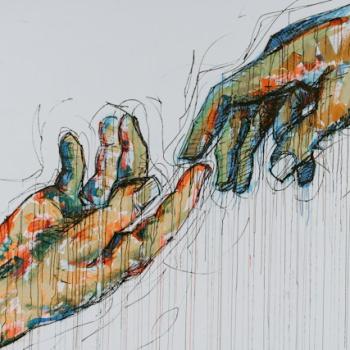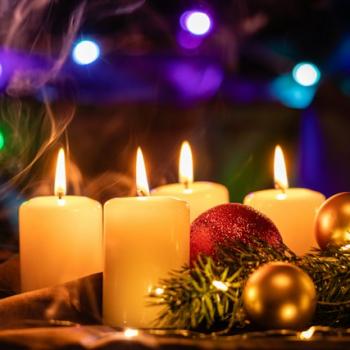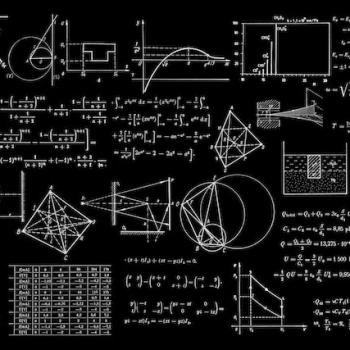
For Christmas this year, my sister gave me a flower bulb already planted in firm potting soil which was already inside an attractive planter. “Beauty awaits,” she texted when I thanked her for the gift. Vicki knows that my skill in keeping plants alive rivals my talent for cooking, singing, and drawing. That is to say, I suck at all of them. But this cute little bulb was fool proof, she said. You only have to water it once a week, she said. Even YOU can’t kill it, she said.
And for a while, it looked like she was right. I couldn’t get over how quickly the green ray of new life shot up reaching toward the light from a nearby window. And sure enough, I forgot about its existence for more than a couple days, but amazingly, it was still alive. It got taller and taller and taller . . . until one day I noticed it lying on the ground. My first instinct was to blame the dog. But upon closer inspection, I realized that the culprit wasn’t any external threat to the plant at all. The stem had gotten so tall that it had buckled under its own weight. There was a gash at the bottom where it had snapped, a bloodless wound that looked like it had been chopped with a tiny axe.
Death By Division
I hated that it had died just when started to get cocky about what I thought was a new-found green thumb. But more than that, I hated HOW it died. It wasn’t that I didn’t water it enough or that it didn’t get enough light. I’ve had those problems countless time. This one had been strong and vibrant and then – it just split, like the taut skin of an overripe peach at the end of summer. Something about that made me sad.
The Gospel reading this Sunday is about Jesus exorcising an “unclean spirit” from a man who recognizes him as “the Holy One of God” (Mark 1:24). Full disclosure – I do not take the Bible literally. I believe that the truth it reveals is spiritual, not historical. For good or for ill, my faith to work for me, it has to ring true against established scientific fact and my own lived experience. Although exorcism in the Catholic Church has sparked some new interest of late, believing that evil spirits exist but can be expelled is, for me, a bridge too far.
But I do believe in the spiritual truth of this Gospel story. What Mark refers to as “unclean spirits” are what the other Gospel writers call “demons.” Demonic possession was a relatively common phenomenon in the time of Jesus. Some have argued that what the people of Jesus’ day consider possession by an evil spirit might be what we would today call epilepsy. Maybe.
“The purpose of our journey is to return ourselves to wholeness.”
~ debbie ford
Personally, I think it’s just one example of the human need to invent causality for the things we can’t comprehend. Throughout human history, when we don’t have a logical explanation for what we perceive with our senses, we come up with stories of the supernatural to fill in the gaps. Before we knew that the earth rotated around the sun, we believed the fiery ball was driven in the chariot of a god across the heavens each day. Many will disagree with me, which is fine. But I think that “demons” are a simply a human invention created to explain bad things we don’t understand.
But why do we call evil spirits “demons” in the first place? Why that name? The term comes from the Greek word, daimōn, whose root is daiesthai, which means to divide. And there it is.
Whole-Making
The hardest part of the loss of my growing bulb was the split at the bottom that divided it into two. Just as a marriage ends when the weight of betrayal or neglect slices what once was an integrated whole into two separate pieces, my bulb appeared to be the victim of an ugly, horticultural divorce.
It’s not just the stems of young bulbs that divide under their own weight. Division – between individuals, families, political parties, nation states, world views – is at the root of so much of our pain. Wholeness is our birthright. It is our natural state, our default setting. Just as we need to drink water because over half of our bodies is made up of the stuff, we continually seek wholeness because it’s who we are. Fr. Richard Rohr quotes Carl Jung in describing the “whole-making instinct” within humans and explains that “Christians would call this whole-making instinct the indwelling Holy Spirit” (A Different Kind of Mystic).
The “unclean spirit” in this week’s Gospel is threatened by Jesus because Jesus is all about making things whole – through love, forgiveness, sacrifice, compassion. To be a Christian is to honor that “whole-making instinct” within us and all of life.
Fun Fact – see the photo above of the green shoot on my bulb? It’s not the “before” version. Believe it or not, it’s the “after” shot. Yes, it did split at the bottom and divided into two parts, but by propping the flailing stem up against the wall and letting time and nature perform their inscrutable magic, it’s taller and stronger now than it was before. Isn’t that what resurrection is all about? Becoming whole again? One day soon I will find colorful petals blossoming from this sturdy stem. Beauty awaits.











